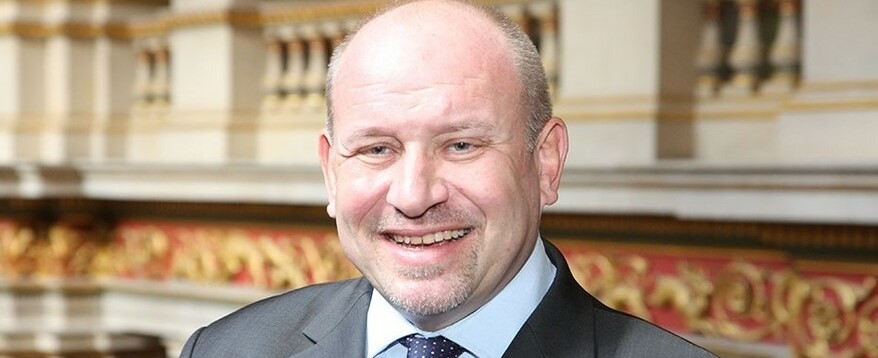British Ambassador to South Sudan, Guy Warrington, emphasized support for fair elections and peace, stating, “The suggestion that the international community is against elections in South Sudan could not be further from the truth.”
He called for open political dialogue and highlighted UK efforts to sustain peace and aid humanitarian crises in the region. “However, we do not support elections that lack the basic conditions for being free and fair, as they risk inciting conflict,” Amb. Warrington affirmed.
He was speaking at the occasion by the British Embassy in South Sudan to mark the birthday of His Majesty King Charles III with a gathering at the Radisson Hotel in Juba on Friday. The event drew attendance from South Sudanese government officials, parliamentarians, diplomats, UN representatives, aid organizations, and the international community. South Sudanese civil society leaders and industry representatives also participate in the celebration.
He continued, “We will advocate for an open civic and political space where individuals can express their true political views, even if that means disagreeing with their government. We will also push for fully funded institutions capable of running elections and for a fully integrated and politically neutral armed forces.”
Ambassador Warrington emphasized the need for political dialogue at the highest level to address issues identified by the UN, AU, and IGAD almost a year ago. “So far, progress has been glacially slow,” he remarked.
He also expressed support for the Tumaini initiative, highlighting the UK’s practical assistance. “It’s important to bring non-signatories on board. However, this should not become a substitute for progress on the implementation of the R-ARCSS or an excuse to maintain the status quo,” he concluded.
Ambassador Warrington stressed the UK’s commitment to peace in South Sudan, expressing concern over ongoing conflicts across the country and the scourge of conflict-related sexual violence. He urged the country’s political leaders to take decisive action and ensure accountability.
He added, “For our part, we have supported locally led and inclusive efforts to strengthen communal peace governance systems to reduce the risk of violence in Lakes, Jonglei, and the Greater Pibor Administrative Area. We have supported advisers to RJMEC and CTSAMVM, and we have built the capacity of local civil society activists to advocate, monitor, and engage effectively with human rights priorities. We have also supported a women-led organization in their important work tackling conflict-related sexual violence.”
Highlighting the dire humanitarian situation, Ambassador Warrington noted that an estimated 75% of South Sudan’s population requires humanitarian assistance, even before the recent increases in the cost of living. “2.8 million girls are out of school, and maternal mortality rates remain among the highest in the world,” he stated.
The British diplomat advised the South Sudanese government to increase its use of public resources to meet the needs of its people. “Invest in critical state institutions, increase spending on essential services such as health, education, and social protection, and ensure that civil servants and public sector workers—teachers, health workers, the police, and the armed forces—are paid fairly and on time,” Ambassador Warrington stated.
He affirmed that international partners, including the UK, have and will continue to support the people of South Sudan through humanitarian and development assistance. However, he insisted, “This should complement, not substitute, government investment.”
Regarding the significance of the celebration and the expectations of His Majesty King Charles III and the people of the United Kingdom, Ambassador Warrington emphasized, “We want transparent and fair elections, peace, and improved financial management and transparency. I am sure that everyone in this room can agree with that.”
He highlighted the long-standing relationship between South Sudan and the UK, noting that it predates South Sudan’s independence in July 2011.
“Since 2011, we have contributed over £2 billion to help the people of South Sudan. This year, we are doubling our assistance to £111 million, focusing on supporting and protecting the most vulnerable, especially women and girls,” Ambassador Warrington said.
He detailed the UK’s contributions in health: supporting 512 health facilities, treating 1.7 million children under five, vaccinating over 330,000 children, and helping 87,000 women give birth safely. He also celebrated the recent arrival of the UK-developed malaria vaccine in South Sudan.
In education, the UK mission has provided cash transfers to approximately 427,500 girls, helping them attend school, and celebrated reaching one million girls cumulatively.
Ambassador Warrington added that the UK provided food assistance to 277,000 people, nutrition services to 35,000 children under five, camp management and WASH assistance to over 140,000 IDPs, protection services for 45,000 vulnerable women and children, and cash transfers to 46,000 people fleeing the Sudan crisis.




